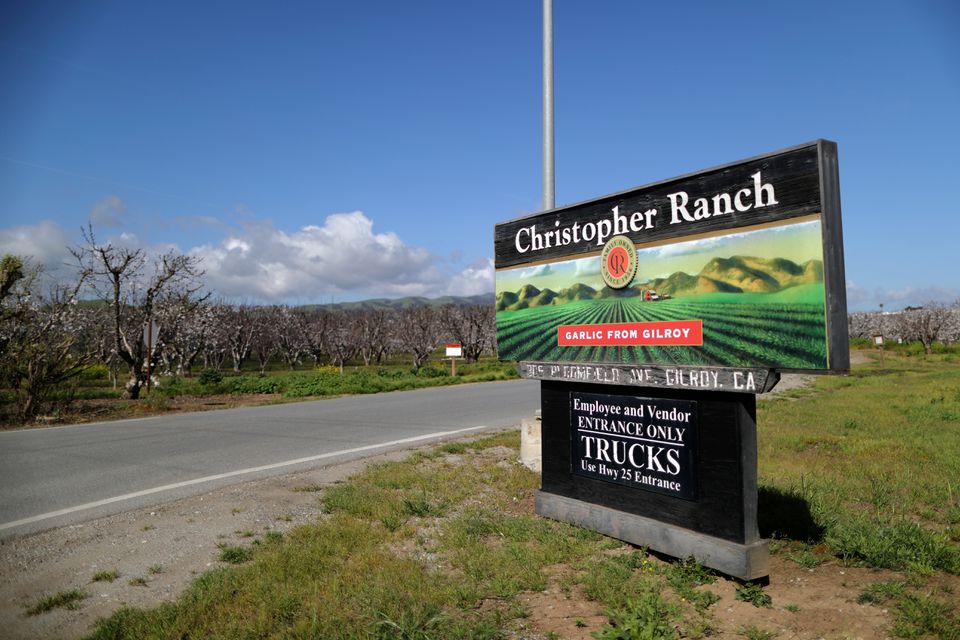June 21 (Reuters) – America’s largest garlic farm needs 1,000 workers to harvest its annual crop, but faces an unexpected hurdle in this year’s recruitment drive: it now must document and track the COVID-19 vaccine status of these seasonal laborers.
Employers in California’s Santa Clara County, including Christopher Ranch, are required as of June 1 to ascertain if their workers have been vaccinated and check in every 14 days on those who say they have not or who decline to answer.
The timing of the order, in the middle of the busy harvest season, couldn’t be worse.
Ken Christopher, the farm’s executive vice president, said the company has to develop a system to check who has been vaccinated while observing privacy laws and monitoring workers’ adherence to safety protocols and testing.
“If the government wants to mandate (a vaccine), that’s one thing,” Christopher said. “But then requiring us to police it, that feels very unconventional.”
Workers in the Silicon Valley county who aren’t vaccinated or refuse to reveal their status to their employer must remain masked and should follow other protocols, such as limiting long-distance work travel and submitting to regular COVID-19 testing.
Employment lawyers said companies are watching closely how rules play out nationally, as they look to bring workers back safely and to dispense with mask protocols. But doing so may require identifying those who got a COVID-19 shot with badges or bracelets, raising discrimination issues and complicating hiring in a tightening labor market as the pandemic eases.
Several states, including California, Michigan and Oregon, have their own rules or guidance on documenting vaccination status for workers but they are generally less strict than in Santa Clara County.
In Montana, however, a recently enacted law discourages employers from asking about vaccination status because it could lead to discrimination claims, according to employment lawyers.
“It’s a hairball,” said Eric Hobbs, an employment attorney with Ogletree Deakins in Milwaukee. “It’s all very confusing.”
Christopher said he is considering a mask-free shift for vaccinated workers and another shift for workers who haven’t gotten their shot to avoid discrimination and tension.
But asking farm laborers about their vaccination status and entering their details in a database could hurt recruitment efforts, he said.
“It’s the additional information being offered to the government,” said Christopher. “The more layers added on top, the more uncomfortable they are in seeking jobs here.”






